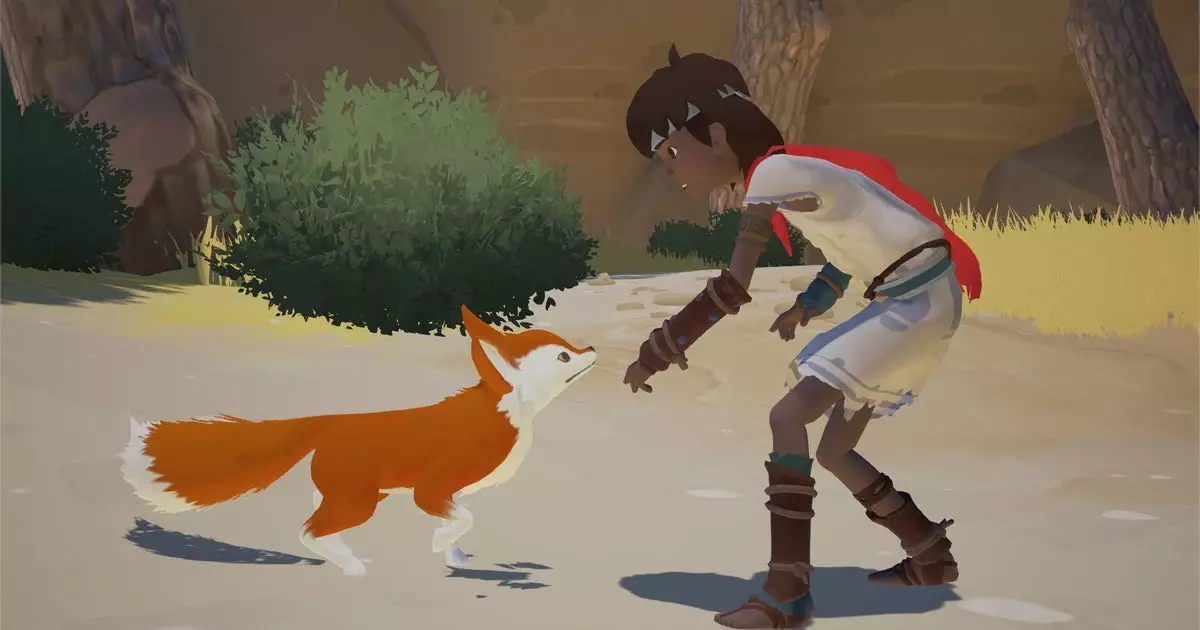Tequila Works, a once-prominent developer in the indie gaming scene, is now a shadow of its former self, grappling with the aftermath of bankruptcy and a series of unfortunate decisions that ultimately led to its downfall. Founded by Raúl Rubio and Luz Sancho, this Spanish studio gained recognition for its innovative narrative-driven titles, such as Rime, a game that stirred emotional responses through its artistic design and compelling gameplay. However, despite these successes, the studio found itself in dire straits after losing funding from the Chinese conglomerate Tencent, which contributed to a series of layoffs and the eventual insolvency announcement.
The bittersweet legacy of Tequila Works is one that exemplifies the volatile nature of the video game industry, where the line between triumph and tragedy can be paper thin. Many fans and industry professionals alike lament the loss of a studio that had the potential to forge new pathways in interactive storytelling. The exit of its founding members not only signifies a schism within the studio but also highlights the precarious balance between creative ambition and financial stability.
An Auction of Dreams: What Could Have Been
As Tequila Works turns to auctioning off its assets, the vast array of projects available for sale paints a poignant picture of unrealized dreams. Among the offerings is The Ancient Mariner, an ambitious open-world action adventure allegedly centered on the exploration of human emotions. While the lofty premise evokes excitement, it risks being overshadowed by the clunky presentation of its concept. Drawing inspiration from Coleridge’s timeless poem suggests a creative continuity with Rime; nevertheless, it remains unclear whether such an undertaking could have delivered the same emotional resonance that set its predecessor apart.
Another intriguing entry is Dungeon Tour, described as a whimsical blend of Overcooked and Dungeon Keeper, inviting players to navigate through procedurally generated catacombs with a band of quirky tourists. The humor inherent in this concept could potentially have sparked social gaming experiences reminiscent of the joy found in cooperative play. However, the fate of this project remains uncertain, leaving us to ponder what could have emerged had Tequila Works continued on this path.
Finally, there’s Brawler Crawler, a concept set in a chaotic urban environment with a focus on combat mechanics. Unfortunately, this title is now labeled as canceled, further solidifying the sense of loss as the studio shelves yet another promising idea. These projects, along with four other unreleased video game concepts—Frozen Outpost, Mr. Bones, Hungry Cities, and Under A Logger’s Moon—underscore the breadth of creativity that Tequila Works harnessed, only to have it extinguished by financial strains.
The Human Impact: A Community at a Loss
One of the most tragic elements of Tequila Works’ dissolution is the impact on its dedicated employees. Reports following the bankruptcy announcement revealed a disheartening reality wherein staff were expected to fulfill their duties without the guarantee of payment. The emotional toll on the team cannot be overstated; many have now taken to LinkedIn to announce their search for new opportunities, sharing heartfelt tributes to their time at Tequila Works. Former narrative director Rob Yescombe articulated a profound sentiment, expressing gratitude for the studio’s role in rebuilding his faith in his career.
This poignant reflection speaks volumes about the community fostered within Tequila Works, a testament to the collaborative spirit that often defines the gaming industry. However, it also raises pressing questions about the responsibilities of studio leadership in safeguarding not just the company’s assets, but the well-being of its employees as well.
Lessons for the Future: The Fragile Nature of Innovation
As we reflect on the journey of Tequila Works, it becomes increasingly clear that this cautionary tale serves as a microcosm of the broader gaming industry. The interplay between creative ambition, financial backing, and market conditions remains a crucial factor in determining the longevity of a studio. The volatile market, compounded by the pressures of securing funding, can easily snuff out the brightest of creative flames before they’re allowed to shine.
In an industry that thrives on innovation and unconventional storytelling, it is imperative for studios to maintain a balance between artistic risks and financial prudence. Tequila Works’ legacy, though fraught with challenges, ultimately highlights the importance of nurturing creative voices while simultaneously ensuring that the organizational structure can withstand the tumultuous tides of the market. As we bid farewell to a studio that once captivated our hearts, we are reminded of the relentless pursuit of creativity amidst an ever-changing landscape.

